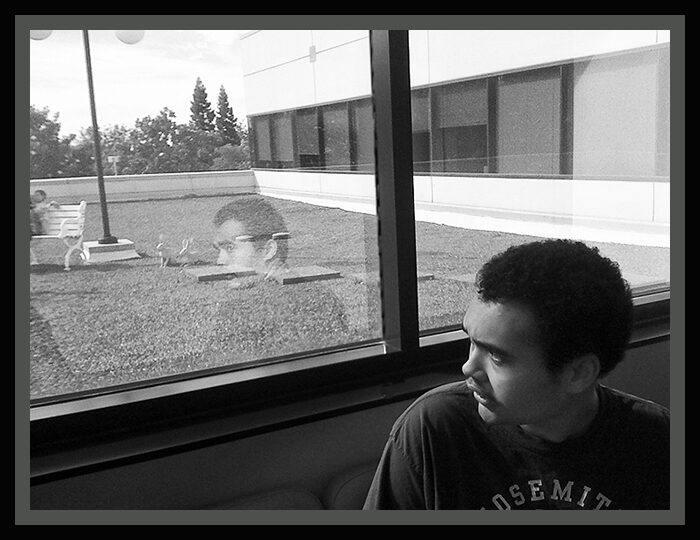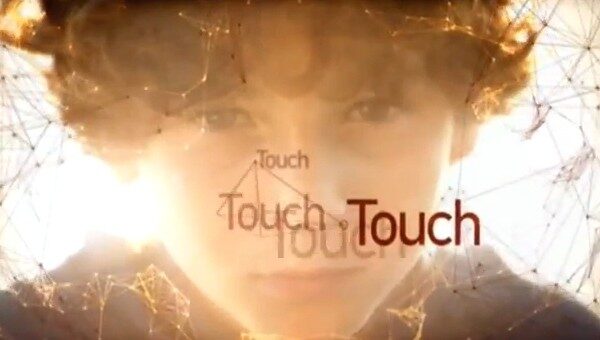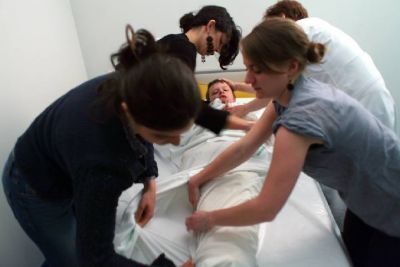Marj Hatzell thedgoddess.com A recent conversation with Marj about rejecting autism and autism parenting as a “tragic battle” evolved into this interview. If you don’t know Marj already, she is a proud SAHM two two boys with autism, ADHD, OCD and a variety of other acronyms. Eleven-year-old Luke is obsessed with all things Star Wars, the Titanic, catastrophic weather events and electronics. Ian is nine, nonverbal and was a fish in a former life. Marj lives vicariously through her computer, is the Queen of Procrastination and goes to Eleven. Tell us a little bit about yourself and your kids. I am 39, a SAHM of two boys and have a degree in special educations, even doing my student teaching in a school for autism. When my boys were born I decided to stay home for a few years because I knew the time was short. I saw signs early on…
Year: 2012
Sarah MacLeod quarksandquirks.wordpress.com The New York Times recently printed two op-eds questioning the existence of Asperger syndrome. The articles came soon after a flurry of media coverage about upcoming proposed changes to the DSM-V, the newest version of psychiatry’s diagnostic guide. These changes remove Asperger syndrome and PDD-NOS (pervasive developmental disorder — not otherwise specified) from the manual, instead creating one category for Autism Spectrum Disorder. Concerns abound. Will people previously fitting one of the three categories now fall into a diagnostic limbo? Will folks lose services because they don’t fit the definition? At least one study claims that these new criteria may greatly reduced the number of people diagnosed as on the autistic spectrum, although only time will tell. Two op-ed contributors to the New York Times seem to have the answer to this possible upcoming crisis: deny that Asperger’s exists and insist the only autism is the classic,…
Mary Brandenburg and Tony Brandenburg www.theebrandenburgs.blogspot.com Trigger warning: discussion of aversives, restraint and seclusion; mistreatment of disabled people Recently, a story that has been in the headlines regarding treatment of students with disabilities concerned an autistic 4th grade boy in Kentucky. Reportedly, the boy smirked and threw a ball in class. The teachers’ response to this behavior was to stuff him in a duffel bag and tie the drawstring so he couldn’t get out. His mom was called to the school to deal with his behavior. She discovered him when she heard a voice calling from the army bag. Thankfully, he didn’t suffocate, but who can measure the emotional trauma he suffered? Another school in the news, the Judge Rotenberg Center, uses painful electrical shocks, restraint chairs, shackles and seclusion to control the behavior of people with disabilities. This center, which charges $200,000 yearly tuition, has lobbied extensively in Washington…
Emily Willingham biologyfiles.fieldofscience.com This post was originally written in September, however questions and assertions about “Lyme-Induced Autism” still occasionally percolate online. Please do feel free to counter such concerns with a link to this analysis by our TPGA Science Editor. -The Editors —- In the “this isn’t science or news” category, a local Fox station story out of Sacramento. Let’s take this bit by bit, shall we? Headline: “Doctors find link between Lyme disease, autism” Problem 1: The story isn’t about “doctors” finding “links.” It’s about one doctor claiming to have seen children in her practice (more on that later) who are “cured” of their autism after treatment for Lyme disease after testing positive for it. In reality, the story presents only one example to support the claim. Problem 2: The story doesn’t show any “link” in the scientific sense of the word, at all. In fact, it produces no…
Kurt Gatejen www.pseudocognitive.blogspot.com For over two decades, my wife and I have ridden an emotional roller coaster of the sort quite familiar to most parents of special needs children. I’m not going to detail those experiences here for two reasons. First, that topic has been covered extensively all over the web, and second, I’m averse to expressing in a grand chronological and developmental scope events and feelings that may be completely misinterpreted as some kind of “woe is me” tale. I don’t begrudge anyone’s need to write about their emotional struggles; it can be very therapeutic for some people. While I may on occasion comment on particular difficulties in the lives of families with autism, I will not ever write an epic saga of that nature. The truth is, despite the many challenges we’ve encountered (and the seemingly intractable problems that loom in the future), neither my wife nor I…
Interview with Dr. Gil Tippy Clinical Director of The Rebecca School, Manhattan, New York www.drgiltippy.com How are the DSM criteria for autism changing? From the official site: “A single spectrum disorder [i.e., folding in Asperger Disorder and PDD-NOS] is a better reflection of the state of knowledge about pathology and clinical presentation; previously, the criteria were equivalent to trying to “cleave meatloaf at the joints.” “Three domains become two: 1) Social/communication deficits 2) Fixated interests and repetitive behaviors “[because] Deficits in communication and social behaviors are inseparable and more accurately considered as a single set of symptoms with contextual and environmental specificities.” We spoke with Dr. Tippy about what the proposed revisions to the DSM 5 will mean for Autistics, autism families, and autism professionals. Dr. Tippy also outlined actions everyone in the autism communities can take to prevent these changes from cutting off critical autism services and support. Why…
Fox TV’s new Kiefer Sutherland series Touch premieres in two days, on Wednesday January 25th. We’re intrigued, and watchful. The series revolves around a non-verbal child, Jake, who understands numerical patterns other people can’t perceive — and his father Martin’s attempts to understand not only what Jake is trying to communicate, but Jake himself. From the series description at Fox.com: Blending science, spirituality and emotion, the series will follow seemingly unrelated people all over the world whose lives affect each other in ways seen and unseen, known and unknown. At the story’s center is MARTIN BOHM (Kiefer Sutherland), a widower and single father, haunted by an inability to connect to his emotionally challenged 11-year-old son, JAKE (David Mazouz). Caring, intelligent and thoughtful, Martin has tried everything to reach his son. But Jake never speaks, shows little emotion, and never allows himself to be touched by anyone, including Martin. Jake is…
David Heurtevent www.supportthewall.org France’s population is about 65 million. Assuming an autism prevalence of about 1 in 110, approximately 590,000 autistics live in France. The French education system contains about 13 million students in a two-tiered educational system: most children attend schools overseen by the Ministry of National Education, but approximately 100,000 students found to have significant disabilities — very few of whom have autism — attend schools run by the Ministry of Health. Most autistics are not educated at all. Significantly, childhood psychiatry in France is dominated by psychoanalysts, who (broadly speaking) view childhood behavioral issues as evidence of disturbances in the relationship between the child and the parents, particularly the mother. Psychoanalytic treatment therefore is not behavioral or educational, but seeks to change the child’s emotions. According to Chantal Sicile-Kira, whose autistic son was born in France, autistic children “had no right to an education. Instead, they were…
Chavisory www.chavisory.wordpress.com I got to open my presents early for Christmas this year, as my mother was going out of town to see family. I told her I hadn’t had a chance to wrap hers yet, so she could open it when she got back Christmas night. We didn’t get to finish opening presents that night. We had a yelling match about the true nature of the autism spectrum. I was diagnosed with Asperger Syndrome a year and a half ago (though I’d known the truth for several years previously), which I guess that most people in my life probably know by now because I decided that it was part of my life that I wasn’t going to make any particular effort to hide, because I had nothing to be ashamed of. I really have no idea what people think of me as a result, because I stopped concerning myself…
John J. Ordover www.sohodigart.com In this country we like to fight things, whether it’s the Fight Against Poverty or the Fight Against Drugs or even the Fight Against Gentrification, we sure do like to fight. We fight cancer, we fight child abuse, we give out soup to fight hunger, we fight, and fight, and, as on The Simpsons, we fight fight fight fight fight! So, is it wrong to say we are fighting autism when we stand up for those on the spectrum? My wife, who has an Asperger’s diagnosis, says it is. Others agree; others disagree, as a Google search for the term “fight autism” brings back over half-a-million listings. Here’s the word on why this phrasing issue is important to me and to others trying to raise money to help people on the spectrum: At 6pm on February 16th, 2012, at 6pm, at The SoHo Gallery for Digital…


